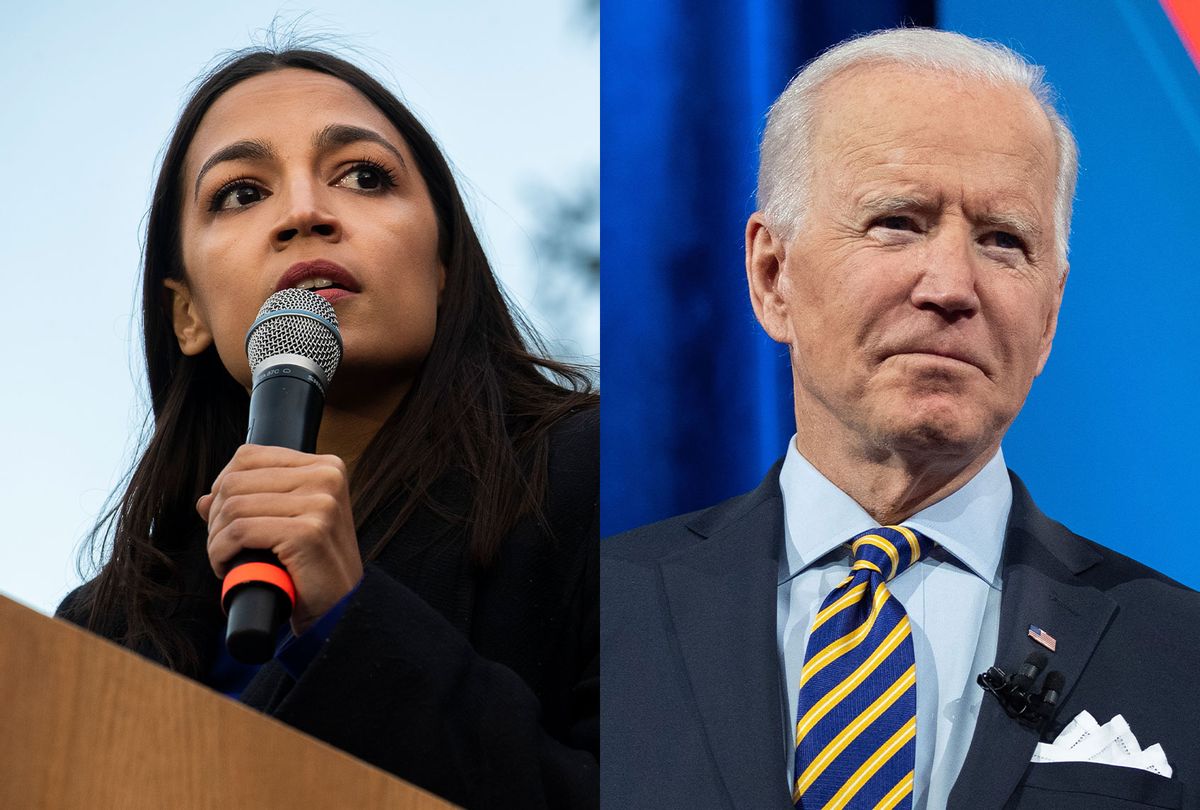President Joe Biden proposed a $2 trillion federal spending package on Wednesday that would revamp the country's crumbling infrastructure, taking specific aim at pollution, job creation, housing and corporate taxes. But many on the left who have championed the Green New Deal say the president's plan isn't big enough.
"This is not nearly enough," tweeted Rep. Alexandra Ocasio-Cortez, D-N.Y, regarding the size of the bill. "The important context here is that it's $2.25T spread out over 10 years. For context, the COVID package was $1.9T for this year *alone,* with some provisions lasting 2 years. Needs to be way bigger.
"I think it's a step towards our vision of a Green New Deal," Ellen Sciales, a spokesperson for Sunrise Movement, echoed. "But the truth is this does not meet the scale and the scope of what we need to meet the true scale and urgency of the climate crisis."
Sen. Sheldon Whitehouse, D-R.I., a member of the Environment and Public Works Committee, likewise called the bill a "fine starting point."
Under Biden's current proposal, the federal government would, among other measures, allot $621 billion to transportation infrastructure such as bridges, ports and roads; put $580 billion toward American manufacturing, job training, and research and development; designate $400 billion to care for eldery and disabled Americans; invest $300 billion into constructing and repairing affordable housing, as well as schools; infuse the U.S. electric vehicle industry with $174 billion; and dedicate $5 billion to repair every lead pipe and service line nationally.
"These are investments we have to make," Biden said of the bill on Wednesday. "We can afford to make them. To put it another way — we can't afford not to."
However, many progressive Democrats have already proposed a spate of separate bills designed to expand the bill's scope of influence. For instance, Elizabeth Warren, D-Mass., and Rep. Andry Levin, D-Mich., introduced a bill that would subsidize the purchase of sustainable products made in America.
The Progressive Congressional Caucus on Monday floated the Transform, Heal and Renew by Investing in a Vibrant Economy (THRIVE) Act, which calls for a $10 trillion investment in green infrastructure, renewable energy, and other climate justice measures over the next decade. The bill heavily addresses racial inequality and dedicates 40% of federal investments to minority groups that have been "excluded, oppressed and harmed by racist unjust practices."
"We are facing a series of intersecting crises," Sen. Ed Markey, D-Mass, the bill's co-sponsor, said. "Climate change, a public health pandemic, racial injustice and economic inequality. We can't defeat any of these crises alone. We must develop a roadmap for recovery that addresses them all."
An analysis conducted by the Sierra Club, an environmental nonprofit, found that the THRIVE Act would generate 15 million jobs. The bill is part of a broader push spearheaded by Interior Secretary Deb Haaland, who unveiled the THRIVE agenda when she was representative for New Mexico. According to Data for Progress, Haaland's agenda drew broad support from Americans, especially swing voters.
"We need a plan that will end the unemployment crisis, but we need this plan to also fight systemic racism, protect public health and drastically cut down on climate pollution," Markey said. "We cannot go back to business as usual. We have a chance to truly, in this moment, to build back better and greener than ever before."



Shares